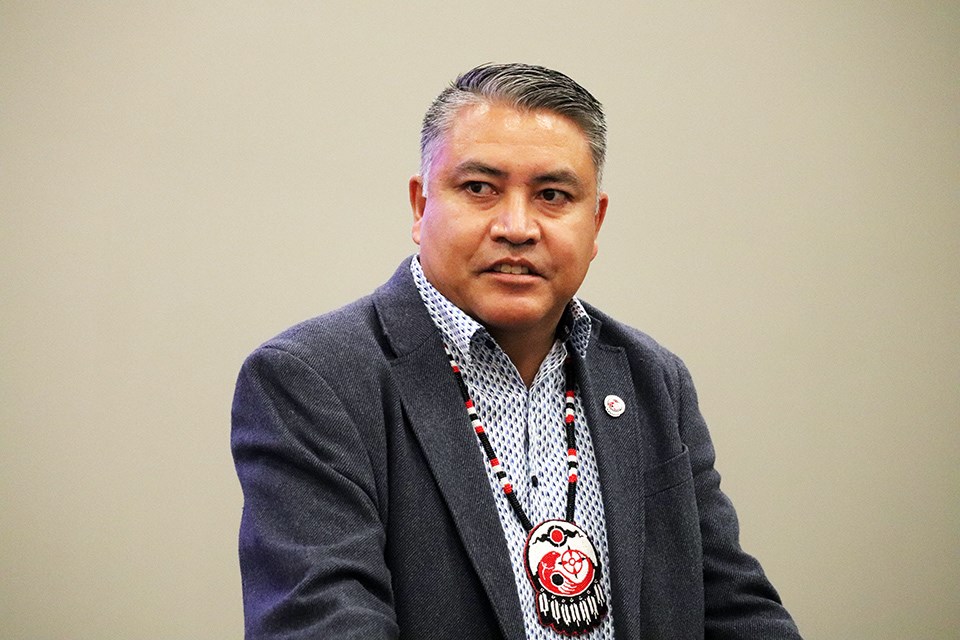B.C. Assembly of First Nations (BCAFN) Regional Chief Terry Teegee says he’s disappointed with the city council’s decision to pass the controversial Safe Streets Bylaw.
“This really speaks how out of touch this city council is with governing and dealing with matters such as these,” said Teegee, in an interview with the Prince George Citizen.
“This poorly written bylaw demonstrates how ill-equipped the City of Prince George is able to deal with these issues”
During Monday night’s meeting, city council passed the bylaw in a five-to-three vote. The bylaw enables bylaw officers to ticket for a number of “nuisance” behaviours like panhandling, using drugs or lying down and obstructing a doorway.
Adam Davey, director of community services, referred to ticketing as last-ditch resort and another tool in the toolkit to achieve voluntary compliance. He said the bylaw wasn’t meant to deter certain people but certain behaviours.
However, city bylaw officers will be able to issue $100 tickets, with a $75 penalty for late payment, for the “nuisance” behaviours that are arguably targeted at homeless individuals.
Teegee spoke at the council meeting alongside Dr. Joseph Hermer, chair of the department of sociology at the University of Toronto, who researches anti-homeless bylaws throughout Canada.
Hermer said Prince George’s bylaw was “unusually punitive and severe” and one of the worst examples he’s seen in terms of the impact on homeless individuals.
Teegee said he hoped Hermer’s insights would help council make an informed decision, as the councillors aren’t experts on some of these issues.
“The plan was to enlighten them and make sure that they make an informed decision and I don't think they did.”
Teegee said the bylaw is particularly concerning because he estimates 80 per cent of the city’s homeless population is Indigenous.
“I think it speaks to this paternalistic colonial way of addressing these types of issues, which is to punish, and I don't think it's going to work out,” said Teegee.
“You're punishing people that are already poor that can't pay fines and further to that you're not offering solutions to the systemic issue of the opioid crisis, chemically dependent addiction, mental health and other issues that people are dealing with.”
Teegee said the BCAFN is working with local Indigenous organizations like the Native Friendship Centre, and PGNATA to develop a strategy to help address homelessness in the city.
“There are already some services being offered and perhaps if we just get a good idea of what needs to be researched and put forward then perhaps this is something that could be addressed to serve a better way ahead rather than just being punitive.”
This bylaw applies to the entire city but especially affects residents of a “tent city” at the east end of Fifth Avenue, which its occupants have dubbed “Moccasin Flats."
The city is also pursuing an injunction with the B.C. Supreme Court to have the tent city removed and is currently working with B.C. Housing on “to prepare the occupants to leave the encampments and move to accommodations that best meet their needs.”
Earlier this year when the city served the tent city occupants notice of trespass, Teegee along with the First Nations Leadership Council called for the city to stop all homeless evictions until a workable plan was in place.
Teegee said he was disappointed to see the city filed for a court order and called the injunction inhumane.
“You're just really creating a space where people are just being moved to different areas in the city. If you don't deal with the root of the matter,” said Teegee.
“I think it's really important to address these issues.”
A hearing for the injunction is scheduled in B.C. Supreme Court for the week of Sept. 13.





